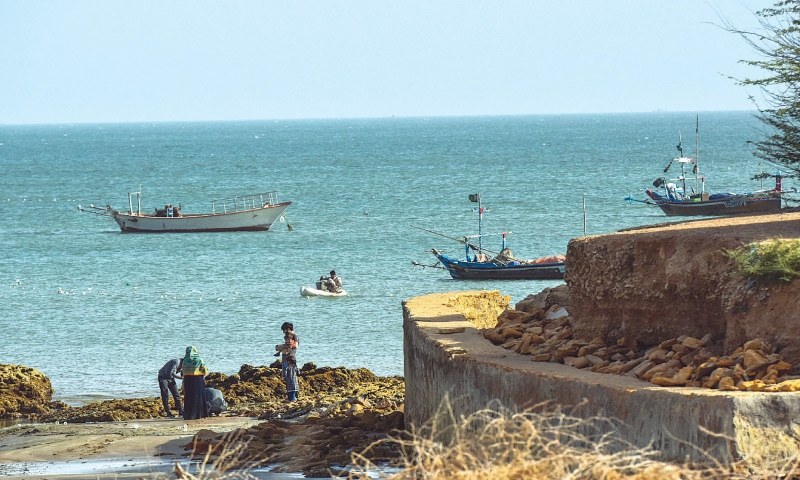Project under way to check sea level rise
Imran Ayub
June 8, 2021
This file photo shows Hawkesbay beach.—Fahim Siddiqi / White Star
KARACHI: As World Oceans Day is being observed on Tuesday (today), alarm bells are ringing in the country’s quarters concerned that have approved a project to check a feared rise in sea level after key signs suggested inundation of low-lying land, intensification of coastal erosion and an upstream push of saltwater.
Scientists believe that the launch of the project would finally lead to collection of exact data which would help design a strategy in this regard after knowing facts about the challenge. Oceanography experts had more than five years ago started pursuing the government to take immediate measures and launch a study that would make it possible for them to know the situation about sea level in the country.
However, it took the country, which has been at the forefront of initiatives over climate change, almost six years to think on these lines. The project would now take five years for scientists and researchers to reach any conclusion about the rise in sea level.
“The government approved the project in October 2020,” National Institute of Oceanography (NIO) director general Dr Samina Kidwai told
Dawn. “The NIO is in fact leading this exercise and there are three other institutions in the project — PCRWR (Pakistan Council of Research in Water Resources), Pakistan Navy Hydrographic Department and Suparco (Space and Upper Atmosphere Research Commission). The project will be completed in five years.”
She said right now the country did not have any data or scientific evidence which could give any idea about the status of sea level and there were numbers and figures mostly based on “speculations” and guesses. However, Dr Kidwai was sure that there were serious indications which suggested that the country was already facing the challenge.
“Definitely there are indicators and signs which suggest that we are facing this challenge,” she said in reply to a question. “Coastal erosion process, salinity issue and other major impacts suggest that this is a challenge. But we need solid evidence, the trend, model and data to learn the exact situation. Only after that we would be able to devise strategy and suggest measures to avoid maximum damage and meet the challenge.”
Experts around the globe are concerned that the sea level rise also threatens to inundate low-lying land while intensifying coastal erosion process. A rise in sea level of up to one metre over the next hundred years globally could badly damage human settlements, agriculture, freshwater supply, fisheries, health and coastal ecosystems. With the federal government project in place, both the authorities and experts are hopeful that though a modest one at least the first step in the right direction has been taken which would lead to crucial information and much-needed data.
“We would complete the installations and observatory within two years,” said Dr Kidwai. “Once the installations are complete, we would start gathering data and monitoring models that would help reach any conclusion. It’s a major step and very crucial project to set the policy and guidelines about our future oceanography.”
Published in Dawn, June 8th, 2021



